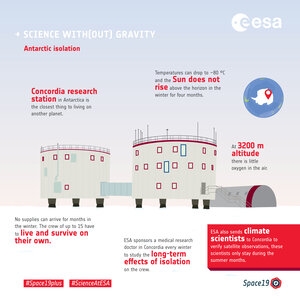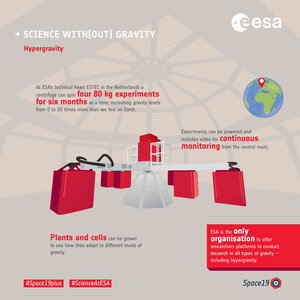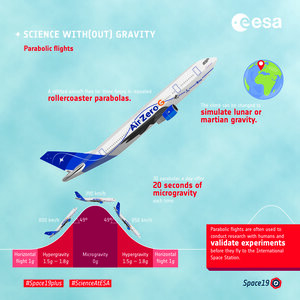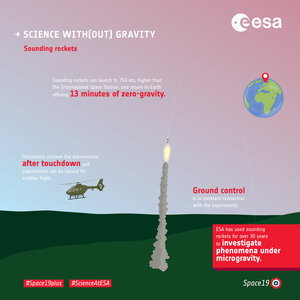

Science with(out) gravity – drop towers
Gravity affects everything we do on Earth but we know surprisingly little about how it works and how it affects life. Until recently scientists had no way of experimenting without gravity to understand what life would be like without it.
Research in space or with facilities on Earth that recreate aspects of space bring knowledge, discoveries and improvements to our daily life and further our exploration of the Solar System.
ESA offers many platforms for conducting experiments across the whole spectrum of scientific disciplines. You can run an experiment in a sounding rocket, drop towers, centrifuges, Antarctica and even the International Space Station.
From the moment an experiment is let go at the top of a drop tower until it hits the padded ground beneath, the experiment is free of the influences of gravity. These short bouts of microgravity are open to scientists from all over the world and offer an economical alternative to spaceflight that can be used at any time of the year.
Proposals for experiments are always welcome and can be submitted via the research announcement page: www.esa.int/spaceflightAO
Science is everywhere at ESA. As well as exploring the Universe and answering the big questions about our place in space we develop the satellites, rockets and technologies to get there. Science also helps us to care for our home planet. All this week we're highlighting different aspects of science at ESA. Join the conversation with #ScienceAtESA.





